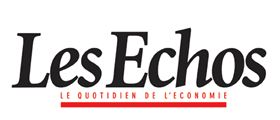United States of America
Despite polarized domestic politics and social tensions, the United States remains a major player in international relations, on the economic, military and diplomatic levels.
Related Subjects

Agreement on the Trans-Pacific Partnership (TPP) in Atlanta. TPP and TTIP: Power Games in the U.S. Congress
Our analysis on the Agrement on the Trans-Pacific Partnership (TPP) in Atlanta: President Obama is now seeking approval from Congress. He might be getting more support from the Republicans.
Blaming El Norte: The Economic Realities of Anti-Americanism South of the Rio Grande
For more than half a century, Cuba captured America’s attention as a symbol of anti-Americanism right in its own backyard. As normalized relations between the United States and Cuba bring these iconic hostilities to a close, many wonder if Castro’s Cold War rhetoric is finally dead. Borne primarily by Venezuela and Ecuador, Latin America's anti-Americanism has in fact merely transformed into an equally aggravating but less consequential trend today. Economic dependency tempers this new thorn in the United States’ side.

The American Campaign
Où en est la campagne américaine ? on France Culture, with Christine Okrent


Donald Trump, candidat à la présidentielle des Etats-Unis
Donald Trump, American presidential candidate: Where is the campaign? with Laurence Nardon, head of the United States program at the French Institute for Intenational Relations (IFRI).


Foreign Policy : Obama's America without a Compass

NSA : can Americans talk privately?
Anne Giudicelli, founder of TERR(o)RISC, Laurence Nardon, researcher and head of the United States program at IFRI, Benaouda Abdeddaïm, columnist at BFM Business and Romain Zerbib, strategic management researcher with IGS, share their thoughts on privacy as the Patriot Act expires.
Les Décodeurs de l'éco, from June 1st, hosted by Fabrice Lundy, on BFM Business.
François Hollande to Cuba
Understand François Hollande's trip to Cuba with commentary by Daniela Ordonez, economist specializing in Spain, Portugal, Latin America and the Carribean at Euler Hermes; Benaouda Abdeddaim, economic editor of BMF Business; Laurence Nardon, researcher and United States specialist at IFRI; Karel Negrete, professor of political theory at the University of Havana and co-author of "Cuba: révolution dans la révolution"; and Philippe Gautier, Assistant Director of Medef International. - Les Décodeurs de l'éco, on May 11 is hosted by BFM Business.
USA and the negociations with Iran 1/2 : How does each side understand nuclear diplomacy?
Robert Litwak is the Vice President for Scholars and Director of International Security Studies at the Woodrow Wilson International Center for Scholars.
USA and the negociations with Iran 2/2 : U.S. views on the true nature of the Iranian regime
Robert Litwak from the Wilson Center joined Ifri on April 22, 2015 for a seminar on the U.S.-Iranian nuclear negotiations. In this video, he analyzes the different views on Iran and its regime.
Robert Litwak is the Vice President for Scholars and Director of International Security Studies at the Woodrow Wilson International Center for Scholars.

Obama's new world, what's next?
Cuba, Iran, Yemen... the White House is fighting on the front lines of multiple diplomatic offensives. In the midst of continuing nuclear negotiations with Iran, Washington has decided to support the Saudi intervention in Yemen while engaging in a new showdown with Iran. The United States won't just sit back with its arms crossed. Incoherent strategy or reestablishing leadership on the international stage? In the final straightaway of Obama's last term, is "Obama the hesitant" looking to rewrite history? And if Hillary Clinton were to succeed him tomorrow, would the former Secretary of State follow in his ideological footsteps?
- Laurence Nardon, head of the United States program at IFRI
- Bertrand Badie, professor at Sciences Po, researcher at Ceri
- John R. MacArthur, by telephone from NYC, Director of Harper’s Magazine
Support independent French research
Ifri, a foundation recognized as being of public utility, relies largely on private donors – companies and individuals – to guarantee its sustainability and intellectual independence. Through their funding, donors help maintain the Institute's position among the world's leading think tanks. By benefiting from an internationally recognized network and expertise, donors refine their understanding of geopolitical risk and its consequences on global politics and the economy. In 2024, Ifri will support more than 70 French and foreign companies and organizations.











